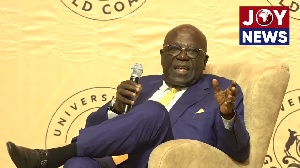Africa News of Friday, 4 April 2025
Source: www.ghanawebbers.com
Ethiopia: Reassessing Al-Shabaab's Influence: How Exaggerated Threats Hinder Somalia's Progress
**Addis Abeba** - This article responds to an op-ed in Addis Standard. The piece, titled "Beyond Denial," was written by Adam Daud Ahmed. It addressed my earlier article, "Countering Alarmist Narratives." While debate is important, it’s crucial to correct mischaracterizations of Somalia's situation. Ahmed's arguments exaggerate Al-Shabaab's threat and ignore the progress made by Somalia's government.
Ahmed claims Al-Shabaab is on a path to a "power grab." He cites alleged territorial gains in Middle and Lower Shabelle regions. While Al-Shabaab has regained some ground, the idea of a national takeover lacks evidence. Inflated threat assessments create fear that benefits insurgents. Such narratives can undermine public trust in state institutions.
Al-Shabaab’s actions resemble guerrilla warfare tactics rather than a full power seizure. They do not have the capacity to govern major cities like Mogadishu effectively. Their governance structures are coercive and lack local support.
Ahmed overlooks significant achievements in Somalia’s counterterrorism efforts. Since June 2022, the Federal Government of Somalia (FGS) has launched successful offensives. Key towns and territories have been liberated through military operations and financial disruption strategies. The absence of major attacks in Mogadishu for three years shows progress.
Operation Black Lion illustrates this military success. It disrupted Al-Shabaab's supply routes in late 2024. Reports indicate a 30% reduction in their ability to conduct large-scale attacks afterward. Additionally, Al-Shabaab-controlled districts decreased by 70% over the past year.
The author rightly points out security vulnerabilities within Somalia’s National Army (SNA). However, he neglects ongoing reforms aimed at addressing these issues. Challenges remain, but the government's strategy focuses on gradual stabilization rather than mere "sugarcoating."
Claiming military gains are temporary is misleading. Setbacks happen but should not overshadow progress made with ATMIS and local militias' help. Security sector reforms supported by Turkey, UAE, and the U.S., show commitment to sustainable defense.
The FGS has undertaken long-term stabilization initiatives over the past decade. Programs like the National Transformation Plan (NTP) aim for peace through political dialogue and local governance improvements. The lifting of the UN arms embargo has also enhanced counterterrorism capabilities.
The claim that Somalia is distracted by Somaliland while Al-Shabaab advances oversimplifies complex issues. In liberated areas, stabilization projects improve economic conditions and social indicators with international support.
Ahmed critiques governance deficiencies accurately but must consider broader state-building efforts too. Governance challenges require balanced approaches involving diplomacy, economic development, and security measures.
Somalia has made notable diplomatic strides recently as well. Achieving debt relief through IMF initiatives reduced external debt significantly from 2018 to 2023. Winning a non-permanent seat on the UN Security Council reflects international confidence in its governance progress.
Addressing Somaliland is vital for overall stability; diplomatic engagement can reduce regional tensions that benefit Al-Shabaab's influence.
Al-Shabaab provides governance functions in rural areas but does so under duress with coercive practices that are unsustainable long-term.
Enhancing state presence in liberated areas is essential for effective governance solutions.
The FGS’s Wadajir Framework aims to strengthen localized governance structures against Al-Shabaab control.
Reports show widespread discontent with Al-Shabaab’s harsh practices among local populations.
Their inability to provide consistent services during crises highlights their fragile control.
Continued international partnerships remain crucial during Somalia's transition toward self-reliance despite dependency risks.
Ahmed suggests community-based counterterrorism programs align with government strategies but lacks security interventions could worsen insurgency problems.
Counterterrorism requires both military action and grassroots engagement for effectiveness.
Exaggerated threat assessments can inadvertently aid Al-Shabaab recruitment efforts by giving them credibility.
President Hassan Sheikh Mohamud seeks Turkish military aid strategically to enhance SNA capabilities.
This support aims to strengthen SNA operations without relying on outside forces long-term.
The goal is for Somali forces to operate independently while improving surveillance and artillery capabilities.
Finally, Ahmed argues that Somali leadership must acknowledge Al-Shabaab's influence but confuses denial with strategic communication.
Exaggerated threats can bolster recruitment for Al-Shabaab instead of addressing real concerns responsibly while managing public perception effectively.











